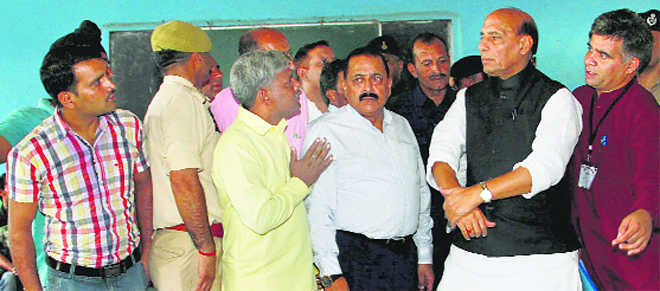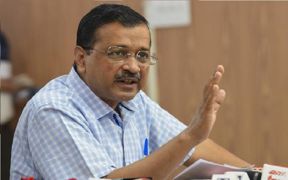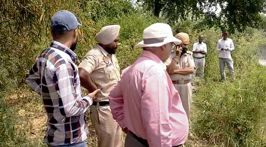
REACHING OUT: Home Minister Rajnath Singh meets migrants in Rajouri on Monday. PTI
Arun Joshi
Home Minister Rajnath Singh has spelled out a five-point formula of five Cs to resolve the long-pending Kashmir issue. He hopes the five Cs — compassion, communication, confidence-building, coexistence, consistency — would propel Kashmir toward its good old days of being the 'paradise on earth'.
Though he did not define the five Cs in detail, the contours are palpable. They centre around former Prime Minister Atal Bihari Vajpayee's three mantras — “insaniyat”, “Kashmiriyat” and “jamhooriyat” — necessary to address the Kashmir issue. Or, it could be a response to Prime Minister Narendra Modi's Independence-Day call for “embracing Kashmiris.”
Rajnath Singh has chosen the right time to say so. It fits the emerging change in the situation in the Valley: things are quieter and the public is in a mood for the return of peace with dignity. The Valley is looking for a way out of the violence and terrorism that have destroyed its land. Destructive elements are getting emboldened by the fact that the vicious cycle of death and destruction yield more “warriors” and reasons to keep Kashmir in turmoil. The majority sentiment, however, arising out of the fear of a bleak future, is a longing for peace.
The duplicity and inconsistency of the leaderships of all hues have made the people realise that bullets and bombs have given them nothing. Instead, they have been deprived of peace and tranquility. The goal of “azadi” promised to them is as distant today as it was in the late 1980s. Now, additionally, the Kashmiris are having had to reel under piles of miseries, with their lifestyle restricted drastically.
The thread needs to be picked up from here. The Home Minister has dropped sufficient hints that the Government of India would help the people of Kashmir with its people-friendly measures.
The five Cs fall in that category.
1 It would be a mistake if compassion is read as some kind of a concession to the terrorists trying to destroy the Valley. The surrender of militants who had joined militant outfits only a few weeks ago, touted as compassion, is just a small part of a bigger goal. The surrender ruptured the misled youth's sense of invincibility gained through acquisition of guns. Compassion needs to be extended to all those Kashmiris who long for peace with dignity in their homes and on streets. They deserve decent behaviour from the police, not their coercive tactics.
2 Communication, of course, is the missing link. The people of Kashmir cannot be reached out by mere statements. There is a need for some appreciation of their views. They simply want to be heard. Not through the corrupt and exploitative leadership, but directly. Delhi has often used proxies and money as channels of communication. It is time to open direct communication channels. Listen to them and then act on the promises. The Home Minister had a taste of it when the people opened their hearts to him candidly and made it clear that a soft approach cannot, and should not, be supressed by hard power.
3 This will also take care of the consistency part because the continuation of such a policy would generate faith in the feeling that work is in progress. There is only one stakeholder: the people of Jammu, Kashmir and Ladakh. There is no need to play a balancing game between the three. These regions of the state cannot be viewed and assessed with different yardsticks. A wholesome approach is needed.
4 Seen from any angle, confidence-building is linked to the assurance that Delhi would not tamper with their faith in it. Do not wait for complete peace to initiate the processes of economic growth, political liberties and an atmosphere to breathe in ease. Delays impose a terrible cost. The announcement of relief for the flood victims of September 2014 in November 2015 was not a good example of doing things. The relief must have come in time.
5 Coexistence cannot be forced on anyone. Pandits are a part of the Kashmiri ethos, but they cannot return home because there is a resistance to that, some welcoming voices notwithstanding. The threat to coexistence has multiplied with radicalisation and intolerance in society. Coexistence needs to be given a meaning by invoking voluntary participation of the people in rediscovering virtues of their centuries-old ethos. Only then would the road to paradise open.



























